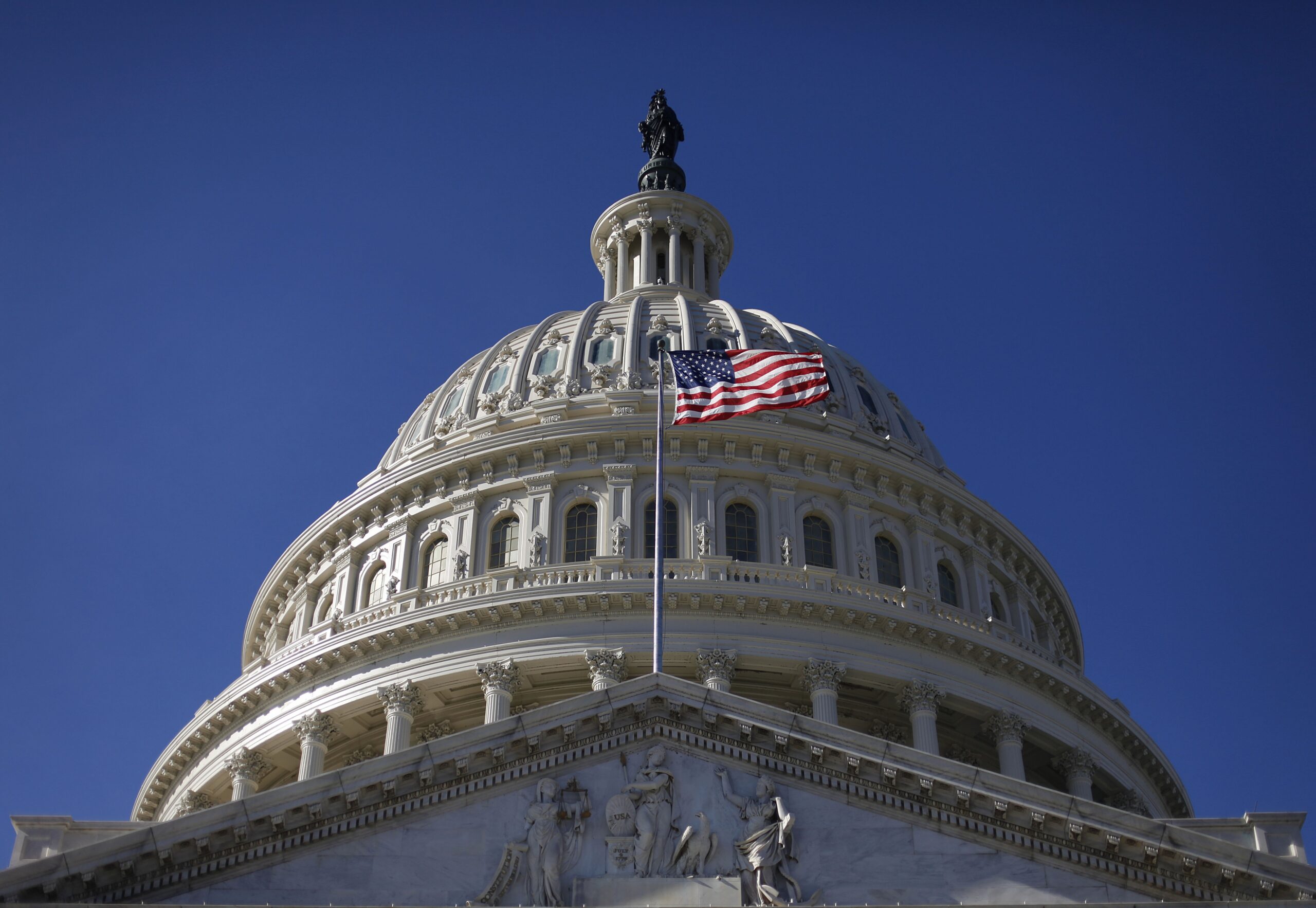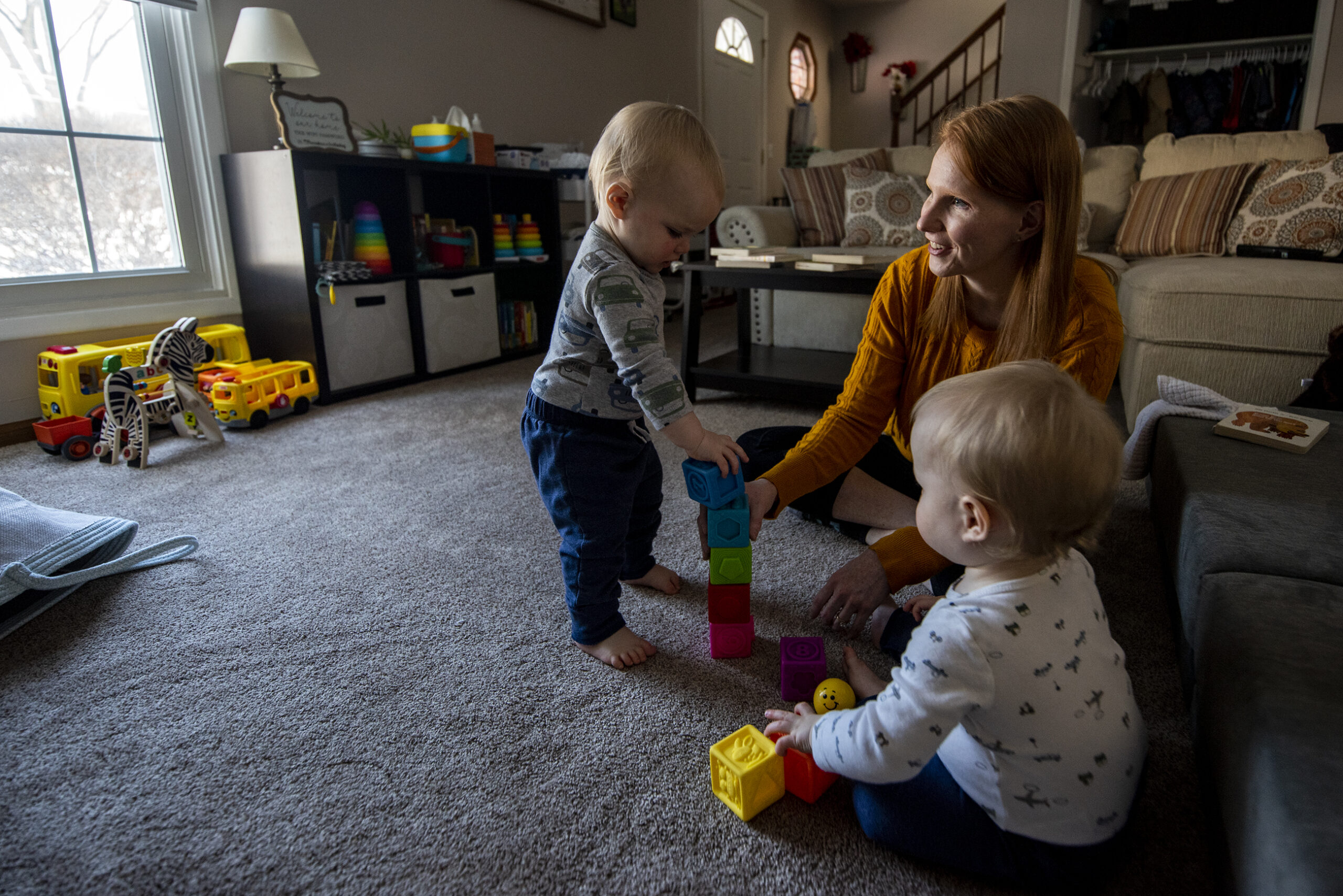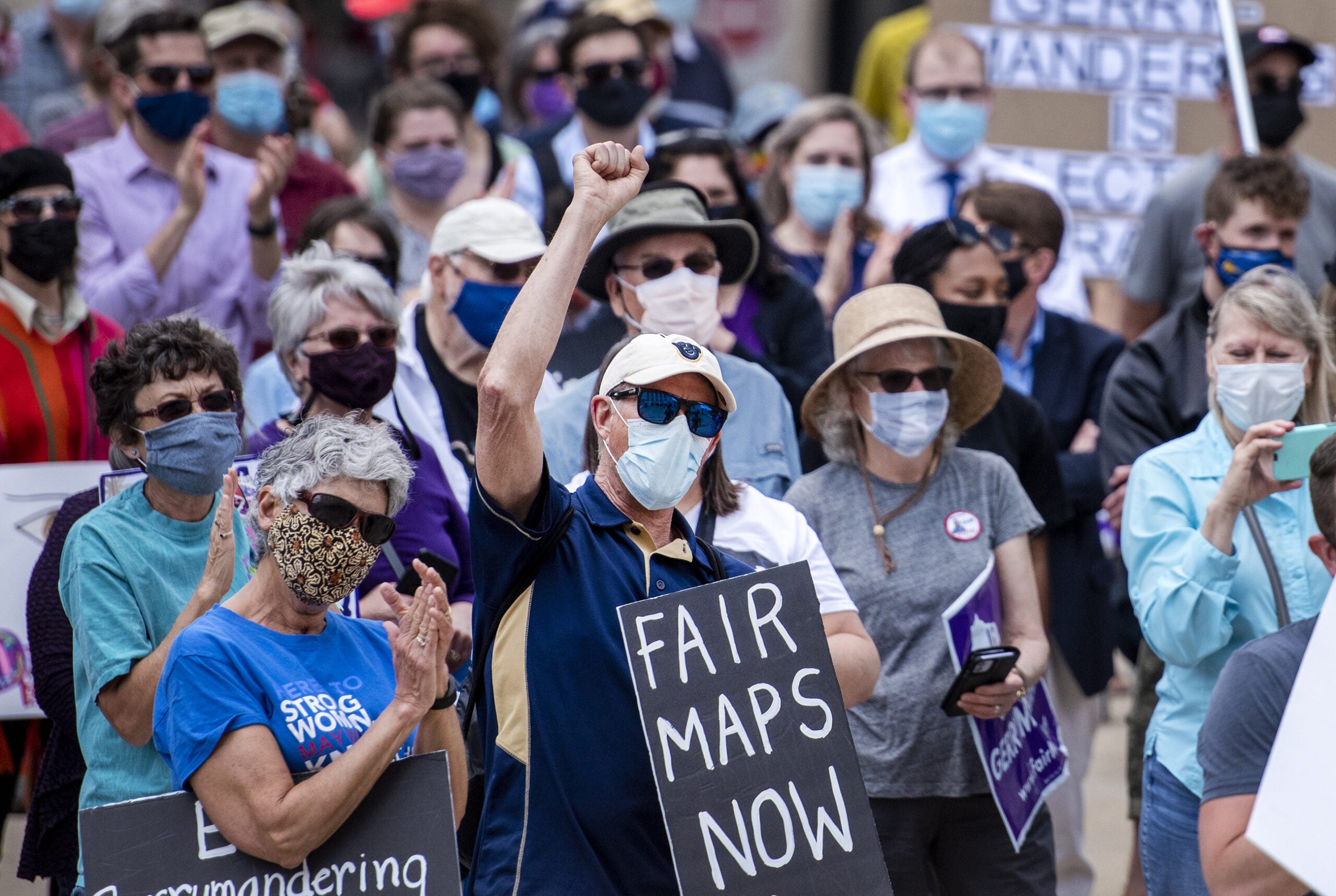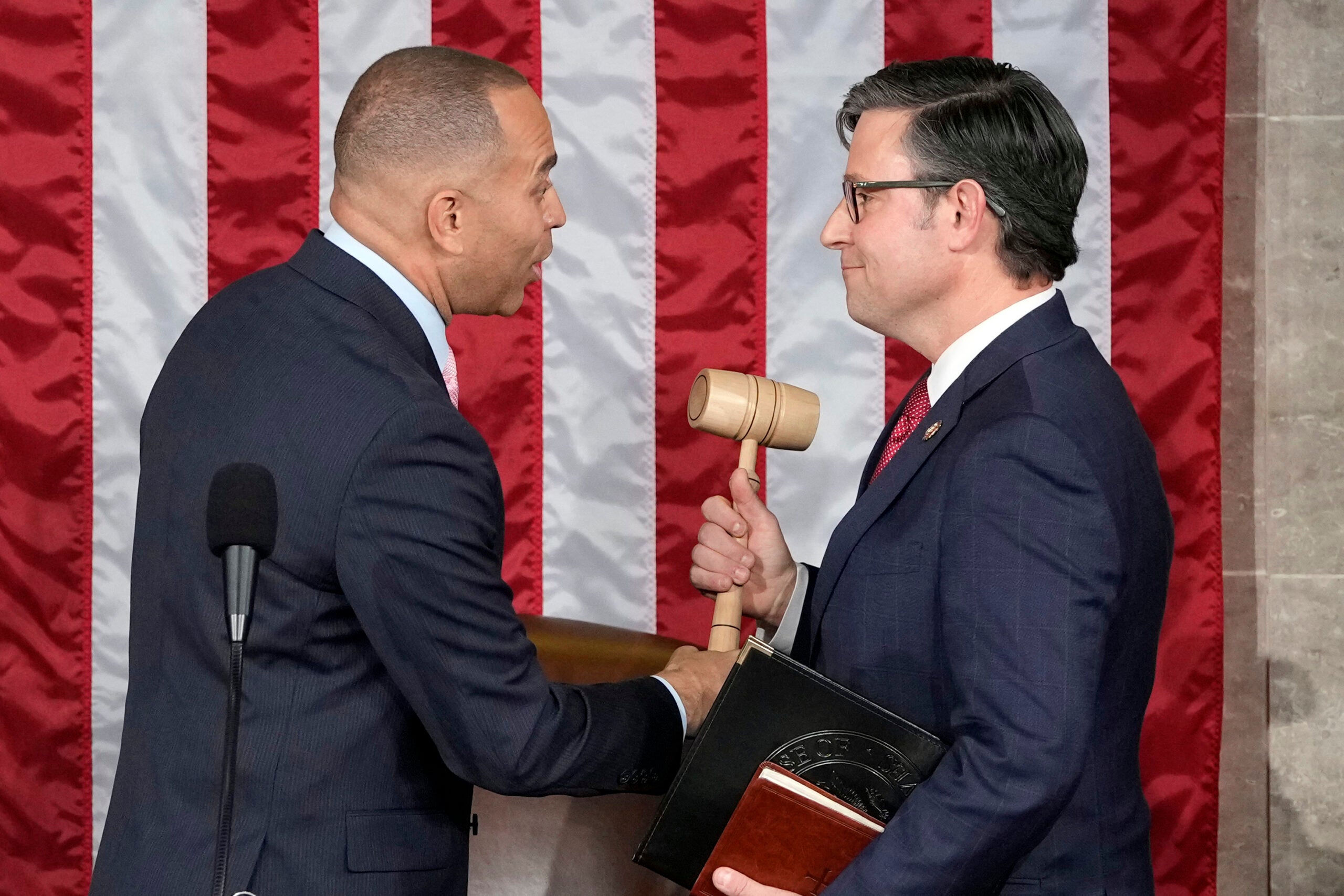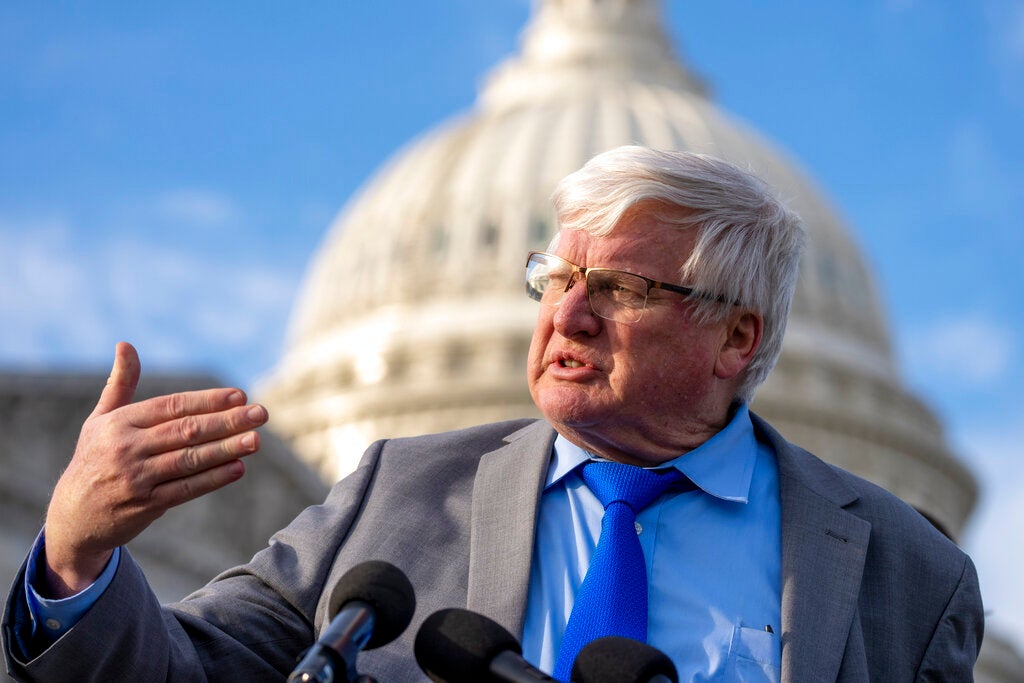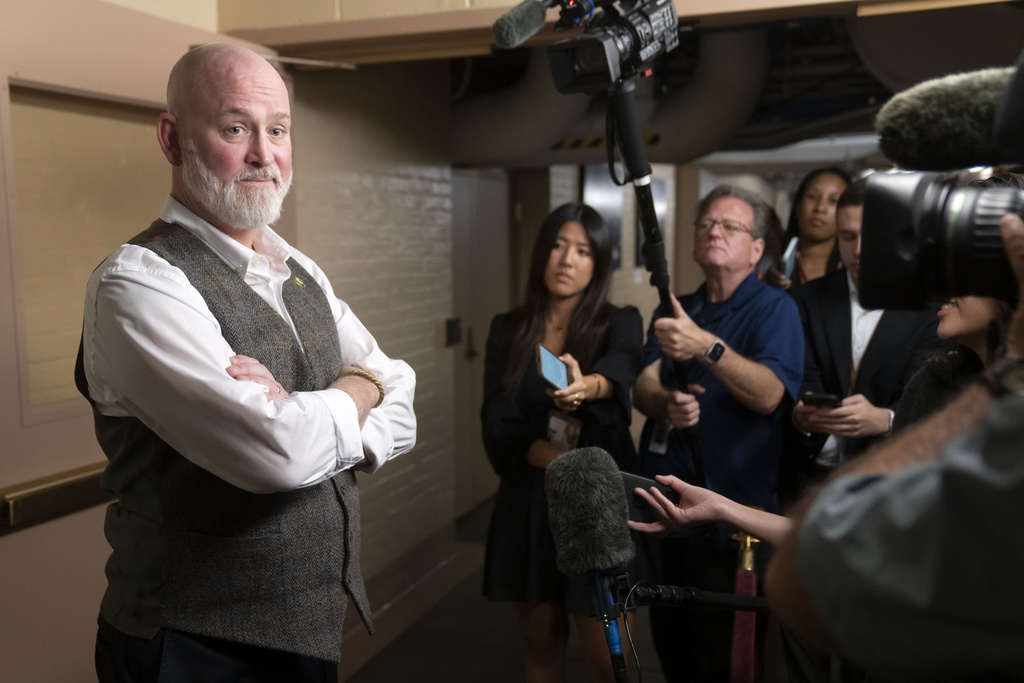A new federal law that aims to address the COVID-19 crisis sailed through Congress with broad bipartisan votes, but Wisconsin’s congressional delegation split along party lines.
All of Wisconsin’s Republican delegation voted against the bill, with Republican U.S. Sen. Ron Johnson voicing some of the strongest protests. The entire Democratic delegation, meanwhile, voted in favor.
The measure, signed Wednesday by President Donald Trump, would provide sick leave, unemployment benefits, free coronavirus testing and food and medical aid to people affected by the pandemic.
Stay informed on the latest news
Sign up for WPR’s email newsletter.
It’s not the first coronavirus bill to pass Congress, and it likely won’t be the last.
Wisconsin’s entire congressional delegation voted in favor of an earlier $8.3 billion spending bill to address the coronavirus. That plan passed the U.S. House on a 415-2 vote earlier this month. It passed the U.S. Senate, 96-1.
A third coronavirus bill — and economic stimulus package that could total $1 trillion — is currently being negotiated by the Trump administration and congressional leaders.
But the second coronavirus bill — which passed the U.S. House early Saturday on a 363-40 vote, and passed the Senate Wednesday on a vote of 90-8 — proved more divisive in Wisconsin, particularly its provision expanding paid family leave.
Here’s a roundup of how Wisconsin’s congressional delegation voted, along with what they said about the new law:
US Sen. Ron Johnson — Voted ‘No’
Johnson has been among the most outspoken lawmakers attacking the coronavirus legislation, saying businesses will disproportionately shoulder the burden of expanding paid family leave, forcing many of them to close.
But his comments about the nation’s response to COVID-19 have turned heads, with Johnson suggesting on multiple occasions the public needs to keep the new disease in perspective.
In a March 12 New York Times article, Johnson said media hadn’t given enough coverage to all the survivors of COVID-19. He expanded on that in a Milwaukee Journal Sentinel article Wednesday, saying he wasn’t denying COVID-19 could be “obviously devastating to somewhere between 1 and 3.4 percent of the population.”
“But that means 97 to 99 percent will get through this and develop immunities and will be able to move beyond this,” Johnson told the Journal Sentinel. “But we don’t shut down our economy because tens of thousands of people die on the highways. It’s a risk we accept so we can move about.”
Johnson added that getting the coronavirus “is not a death sentence except for maybe no more than 3.4 percent of our population (and) I think probably far less.”
For context, 3.4 percent of the United States population would be roughly 11.2 million people, while 1 percent would represent about 3.3 million people. Centers for Disease Control and Prevention data show about 170,000 people died from accidents in 2017.
In a statement issued after the Senate’s vote Wednesday, Johnson said he would have preferred the Senate adopt an amendment he sponsored that would have removed the paid sick leave requirement for employers, temporarily expanded eligibility and waived the waiting period for state unemployment benefits and increased state benefits to provide two-thirds of actual wages up to $1,000 per week.
“Now that the House bill passed unamended, laid-off workers will get far less from state benefits, and many employers will be forced to shoulder a financial burden they cannot afford,” Johnson said.
US Sen. Tammy Baldwin — Voted ‘Yes’
Democratic U.S. Sen. Tammy Baldwin had signaled ahead of the vote that she supported the coronavirus legislation, and joined all Democrats in voting “yes” Wednesday.
“Small and medium-sized businesses need financial help to provide workers with emergency paid family leave, including paid sick leave,” Baldwin said in a statement ahead of the vote. “This legislation does that and provides more support so that workers don’t lose their pay when they stay home sick, or go without a paycheck to take care of their children who are now home from school.”
Baldwin also signaled in a tweet after the vote that further steps — like an economic stimulus bill — would still be needed.
“I voted for #FamiliesFirst legislation that passed the Senate. It’s a strong step forward but we have more work to do on a bold economic stimulus response to help workers, families and small businesses get through this crisis,” Baldwin tweeted.
1st District US Rep. Bryan Steil — Voted ‘No’
Republican U.S. Rep. Bryan Steil, of Janesville, voted against the bill, releasing a statement Saturday on Twitter that referenced the bill’s family leave provisions.
“Last night’s bill, which was released shortly before midnight and voted on an hour later, places a heavy government mandate on Wisconsin small businesses that are already suffering negative consequences from coronavirus,” Steil said. “We need to support job creators, not penalize them.”
Steil said he would continue working with the Trump administration and his colleagues in Congress to address the new coronavirus.
2nd District U.S. Rep. Mark Pocan – Voted ‘Yes’
Democratic U.S. Rep. Mark Pocan, from the Dane County town of Vermont, voted “yes” on the coronavirus bill, adding in a statement that more needed to be done.
“It took longer than expected for some folks to put #FamiliesFirst, but we did it,” Pocan said in a tweet early Saturday morning. “A lot still to be done about addressing the spread of this outbreak. But today we took a massive step forward to protecting working families while we do.”
Pocan indicated in a conference call with reporters Monday that he supported additional proposals to address the new coronavirus, though he acknowledged the virus itself — and recommendations against large social gatherings — could make it challenging for Congress to meet.
3rd District US Rep. Ron Kind — Voted ‘Yes’
Democratic U.S. Rep. Ron Kind, of La Crosse, voted “yes,” signaling support for its provisions on COVID-19 testing.
“It is critically important that every Wisconsinite is able to be tested for COVID-19 free of charge,” Kind said in a statement. “This legislation ensures that no one will have to worry about out-of-pocket expenses for testing and gives every American the ability to stay home when sick without having to worry about missing a paycheck.”
4th District US Rep. Gwen Moore — Voted ‘Yes’
Democratic U.S. Rep. Gwen Moore, of Milwaukee, voted “yes,” saying the bill’s provisions on family leave and food assistance were critical.
“I understand that not every worker can work from home or has access to paid family leave,” Moore said in a statement. “This why the Families First Coronavirus Response Act would provide support for Americans as schools continue close, and parents must stay home with their children. It would help ensure access to paid leave for those whose employment becomes disrupted by this disease or who are quarantined or ordered into isolation or must be a caregiver for someone who is quarantined or in isolation.”
Moore announced Monday she had self-quarantined after coming into contact with someone who had contracted COVID-19 although Moore said she didn’t personally have any symptoms.
5th District US Rep. Jim Sensenbrenner — Voted ‘No’
Republican U.S. Rep. Jim Sensenbrenner, of Menominee Falls, voted “no,” citing the speed at which the bill was unveiled and voted on.
“Early this morning, the full text of H.R. 6201 was presented to House members with less than 30 minutes to review 100-plus pages of bill text,” Sensenbrenner said in a statement Saturday. “We do not know the full cost of this legislation. I am not a fan of passing bills to find out what is in them.”
Sensenbrenner said he hoped the Senate would “review and address” issues with the bill, although ultimately, it passed the Senate unamended.
“We must deal with this outbreak in a measured and responsible way,” Sensenbrenner said.
6th District US Rep. Glenn Grothman — Voted ‘No’
Republican. U.S. Rep. Glenn Grothman, of Glenbeulah, voted “no,” saying in a statement the House vote on the bill was “rushed.”
“We were told that at some point on Friday, March 13, Congress would vote on a second bill to address the Coronavirus pandemic,” Grothman said. “House Speaker Nancy Pelosi and Treasury Secretary Steven Mnuchin met several times Thursday and Friday to negotiate the contents of the bill. I, along with the rest of Congress, waited two full days to find out what would be in the bill.”
Grothman, who was no stranger to late-night votes in the state Legislature before joining Congress, said he still expected to have an opportunity to read the contents of the bill.
“Finally, Saturday at midnight, we received the 110-page bill,” Grothman said. “Less than 30 minutes later, we were called to the Floor to vote on it.”
Grothman also criticized the bill’s paid family leave provisions, saying they would put many small businesses at risk of closure.
7th District — VACANT
While Wisconsin’s 7th U.S. House District remains vacant following the decision of Republican Sean Duffy to leave office, the two candidates for the seat issued statements on the plan.
Republican state Sen. Tom Tiffany, of Hazelhurst, said he would have liked to see changes to the bill.
“I am closely monitoring the impact coronavirus is having on Wisconsin,” Tiffany said. “Protecting the health of our communities is imperative. The House bill passed this weekend helps pay for testing and offers paid sick leave, but it should be amended to fix its flaws such as the sick leave mandate that will harm small businesses.”
Democrat Tricia Zunker issued a statement that was critical of Tiffany.
“Now more than ever we need leaders who are going to unify us and put the health and safety of working families above partisan politics,” Zunker said. “Tom Tiffany wants to go to Washington just to play partisan games. I will always put people first and work across the aisle to do what is right for the working families of Wisconsin.”
8th District US Rep. Mike Gallagher — Voted ‘No’
Republican U.S. Rep. Mike Gallagher, of Green Bay, called the coronavirus bill “well intentioned” but said it could force businesses to lay off workers or close their doors altogether.
“Let me be clear: H.R. 6201 contained a number of good provisions like free testing that we’ve already successfully fought for,” Gallagher said in a statement. “But I have serious questions as to whether the best way to support those needing paid and sick leave is through tax credits to small businesses instead of direct payments to those affected. In times like these, we have to do better than rushed closed-door deals that could create more problems than solutions.”
Wisconsin Public Radio, © Copyright 2024, Board of Regents of the University of Wisconsin System and Wisconsin Educational Communications Board.

